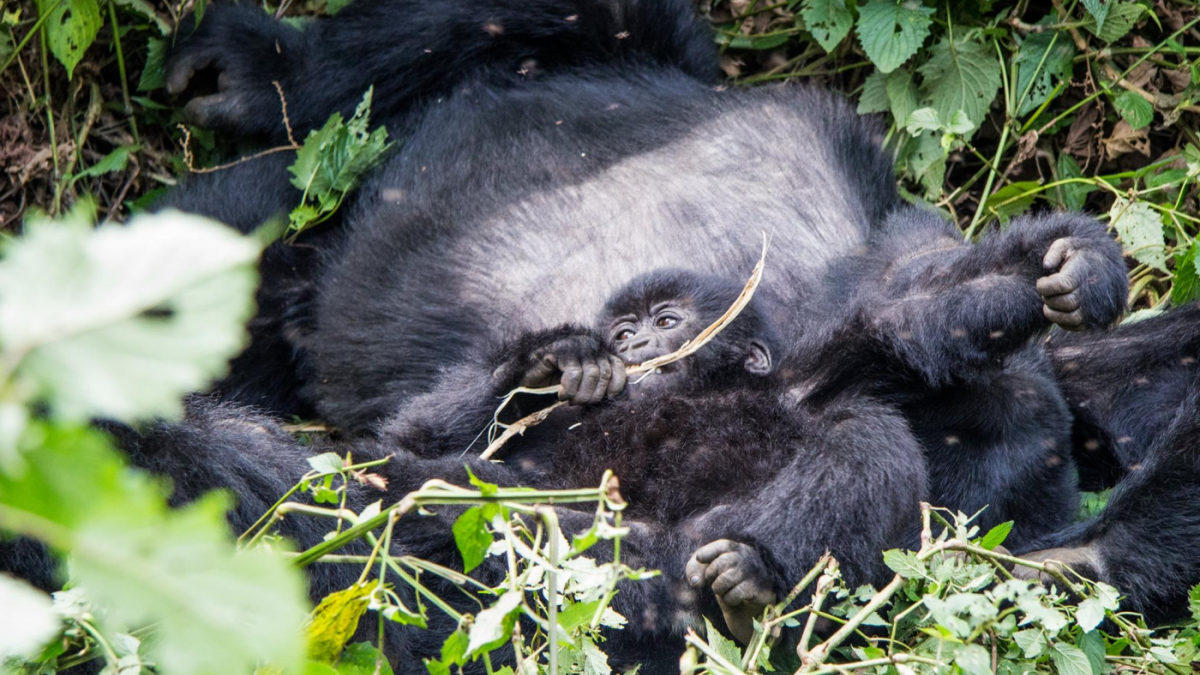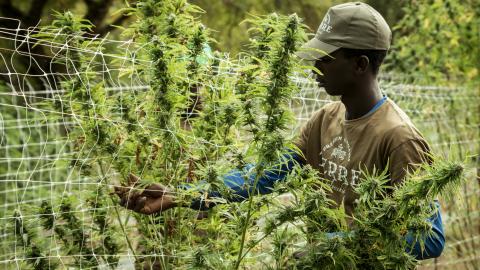
August 10, 2017
 Erica Grant is an Occupational Health at the Human-Animal Interface (OHHAI) Training Scholar working towards her MPH at the Center for One Health Research. Her practicum focuses on the Gorilla Conservation Employee Health Program that is run yearly by the Gorilla Doctors (aka Mountain Gorilla Veterinary Project).
Erica Grant is an Occupational Health at the Human-Animal Interface (OHHAI) Training Scholar working towards her MPH at the Center for One Health Research. Her practicum focuses on the Gorilla Conservation Employee Health Program that is run yearly by the Gorilla Doctors (aka Mountain Gorilla Veterinary Project).
Disease is one of the major threats to mountain gorilla health, particularly those introduced by humans, such as measles, pneumonia, and tuberculosis. This program was launched with the recognition that the best way to ensure the health of endangered mountain gorillas is by monitoring the health of workers and their families, and providing access to vaccinations and medical care.
Erica is currently working at the Gorilla Doctors' headquarters in Musanze, Rwanda, where she aims to streamline the data collection process through an electronic record keeping system. The electronic data collection system will improve data quality and management and allow for integration of human and gorilla health databases to detect trends in both populations.
"There is a lot of great effort that goes into protecting the health of these amazing animals, and it's hard to think of a better example of where "One Health" principles are so relevant to saving a species. The mountain gorillas would likely not be able to survive without the intensive, directed efforts of veterinarians and research staff like the Gorilla Doctors, who embrace this challenging and multi-faceted approach." - Erica
About the gorilla picture: Trekking guides are well aware of the health risks that humans pose to mountain gorillas and actively ensure that tourists maintain a distance of 7 meters to avoid inadvertently transmitting any diseases to the gorillas. However, due to the thick vegetation in the area, and the fact that the gorillas move where they please, it can be difficult to observe this distance consistently. With a growing tourism industry based off mountain gorilla treks, the risk of a tourist unwittingly infecting a mountain gorilla is not negligible. Possible measures to mitigate this risk include use of masks by tourists (typically only worn by veterinarians and other workers who are directly contacting gorillas) or policy changes to allow for cancellation and rescheduling of a trek in the event that a member of the party is feeling unwell. (photo credit: Erica Grant)




